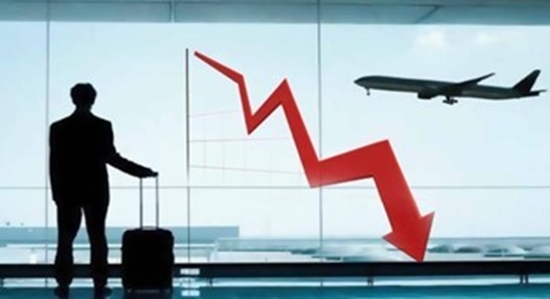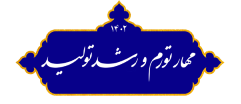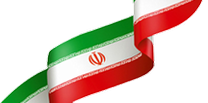Karami:
The entrepreneurship ecosystem is the most important infrastructure for return of elites
The advisor to the president of the national elites foundation emphasized the significant improvement in return of Iranian elites to the country, stating: the entrepreneurship ecosystem is the most important infrastructure required for return of elites, which is the reason for its consideration by the Vice-Presidency.

The advisor to the president of the national elites foundation emphasized the significant improvement in return of Iranian elites to the country, stating: the entrepreneurship ecosystem is the most important infrastructure required for return of elites, which is the reason for its consideration by the Vice-Presidency.
According to the information center of national elites foundation quoted by the club of journalists, the government has paid special attention to exploitation of national talents in the past few years. In fact, any person with an idea is allowed to start activities in their desired field in the form of a startup. A few years ago, the establishment of startups and knowledge-based companies would be overlooked, but today, large units have been created to manage this area. Valuating science and technology enthusiasts and elites of the country and improving the infrastructures will increase the hope of this individuals to continue their activity in the country.
Parviz Karami, the secretary of knowledge-based economy and culture-building technologies development headquarter, pointed out the national elites foundation has assessed the emigration of elites in its last assessment, stating: these assessment showed a considerable improvement in emigration of 1-1000 ranks of university entrance exam in the field of mathematics (22%), definitive emigration of 1-1000 ranks of university entrance exam in the field of experimental sciences (12%) and among winners of math, physics, chemistry, computer, astrology and biology Olympiads (5%).
Return of 1400 Non-resident Elites from 100 Top Universities in the World
Science and technology advisor of the president continued: a project has been initiated to attract Iranian students from other countries. During this time, the Vice-Presidency has been able to return 1400 elites to the country, the majority of whom were graduated from top universities in the world. This rate shows the reverse trend of emigration of scientists and improvement of infrastructures of the country in the innovation and technology ecosystem. This is a part of our project known as “hunting elites”.
In terms of the entrepreneurship ecosystem, Karami asserted: this project showed that the entrepreneurship ecosystem is the most important infrastructure for return of elites. The Vice-Presidency has intended to cover this issue. According to the report of global innovation index in 2019, Iran has had considerable growth in the area of science productions, as well as the areas of nanotechnology, medical engineering, bio-engineering, and bio-products.
A Four-level Improvement in Gii of Iran
The secretary of the knowledge-based economy and culture-building technologies development headquarter continued: the business index of Iran has improved by four levels with the support of the Vice-Presidency for science and technology affairs. We were ranked 120 in the beginning of the 11th government, which has decreased to 61 this year, marking the fifth year with a reduction in this rank, which is the result of work of universities, research innovation centers, new businesses and knowledge-based companies and venture capitals.
Karami reminded: some have falsely repeated a sentence that Olympiad winners have left the country and none of them live in Iran. When a person wins in Olympiad, they will definitely consider continuing their education abroad. However, their interest to return to the country must be assessed after a few years. Those winning Olympics are definitely interested in continuing to study at the best universities in the world, but the situation should not change so that they are not interested in returning home and our plans in the country are to attract and retain specialized human resources in the country.
The decline in emigration of academics is not just about figures. As you can see, thousands of students who have left their country now have a serious desire to serve their country. Establishing science and technology parks and innovation centers and presence of financial supporters from the private sector are among positive measures taken in this regard.
Considerable Decrease of Emigration of Students
Advisor to the president of the national elites foundation announced a considerable decline in emigration of elites to other countries, stating: emigration of 1-1000 top ranks of university entrance exam in the field of mathematics has decreased from 60% to 38% in the past five years.
Secretary of the knowledge-based economy and culture-building technologies development headquarter talked about the status of exit of elites from the country, asserting: in its latest assessment, the national elites foundation evaluated the emigration of elites from the country. In this research, 2712 student Olympiad winners and 35313 1-1000 top ranks of university exam were analyzed, demonstrating interesting results. The results indicated that emigration of 1-1000 top ranks of university entrance exam in the field of mathematics has decreased from 60% to 38% in the past five years.
Pointing the continued decline in emigration of scientific assets of the country, Karami added: the level of definitive emigration of 1-1000 top ranks in the fields of experimental sciences and humanities has decreased by 3% and 12%, respectively. A decrease is also observed among winners of math, physics, chemistry, computer, astrology, and biology Olympiads.
Karami also mentioned the negative growth of elite emigration in Iran, asserting: statistics and reports related to international institutions and immigrant-accepting countries show that not only there is no increase in the number of emigrated elites, there has been in fact a negative growth in this area.
Secretary of the knowledge-based economy and culture-building technologies development headquarter continued: according to the report by the emigration office of Canada, 2354 Iranian students were in this country in 2015, putting Iran on the 12th rank of the list of countries with students in Canada. On the other hand, the total number of Iranian students in Canada was 6485 in 2017, which shows a significant decrease compared to 11665 emigrants. In addition, the USA emigration office has reported that Iran’s rank has decreased by five times in the field of sending students, compared to before the revolution.
Return of 130 Entrepreneurs to the Country in the First Four Months of the Country
Advisor to the vice president for science and technology affairs stated: on the other hand, return of Iranian experts to the country by the Vice-Presidency and the national elites foundation and cooperation with these individuals have considerably improved, which has been the result of designing and implementing a program known as cooperation with non-resident Iranian experts and entrepreneurs. This project was initiated in 2014 with the goal of using the knowledge and experience of Iranian scientists from across the world.
Karami continued: the project was implemented using the experiences of PhD graduates from 100 top universities in the world, professors of top universities in the world and active Iranian experts and entrepreneurs working in institutions or foreign companies. More than 4700 Iranian specialists and graduates from abroad started their work with a well-designed process that saw the return of 130 entrepreneurs from the top 100 universities in only four months. The establishment of 200 knowledge-based and technology companies by returning elites to the country and providing employment opportunities for 7,000 specialists are parts of the process of returning elites to the country.
Advisor to the president for science and technology affairs emphasized the importance of non-return emigration of elites, stating: today, exit of elites is not our main issue. However, their non-return exit is concerning. Currently, most countries seek to exchange elites in the world using different policies. Our policies have also been changed in terms of recruitment of non-resident elites.






 adress : No. 209 , between Navab Str and Roudaki Str. Azadi Str. Tehran - Iran
adress : No. 209 , between Navab Str and Roudaki Str. Azadi Str. Tehran - Iran  phone: +98 21 63478000
phone: +98 21 63478000